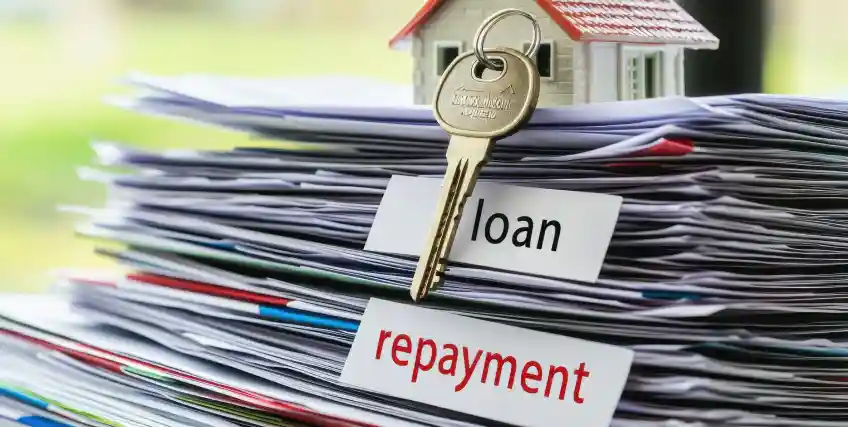How to Start a Vending Machine Business
March 26, 2025 | Last Updated on: March 26, 2025

In this article, we discuss:
- Laws and regulations
- Vending machine costs
- Vending machine business models
- Vending machine profits
- Step-by-step view to start a vending machine business
A vending machine business is a way to generate passive income and predictable cash flow. With many options to choose from, entrepreneurs can get creative with the type of food or beverages they sell, vending machine locations, and the size of their business. However, there are regulations, logistics, operations, and nuances to think through before jumping in. We dispense all the information you need on how to start a vending machine business.
Laws and regulations
There are both state and federal regulations on selling food and/or beverages from vending machines.
Federal: The United States Food and Drug Administration (FDA) requires vending machine labeling as described in what is known as the Vending Machine Final Rule. The final rule applies to vending machine operators who own or operate 20 or more vending machines. The regulation requires calorie declarations for vending machine foods for which the nutrition facts label cannot be examined before purchase or if visible nutrition information is not provided at the point of purchase. The FDA has compiled a guidance document to help vending machine operators comply with the final rule. Section 4 in the FDA’s Calorie Labeling of Articles of Food in Vending Machines: Guidance for Industry has a complete breakdown of everything you need to know. Vending machine operators with less than 20 vending machines can voluntarily subject themselves to abide by the final rule by registering with the FDA via FDA Form 3757.
machine” State: Each state has laws regarding vending businesses and most require that you obtain a business license or permit. States are flexible with your business structure as you can typically decide which type of business is best for you. You can operate as a limited liability company, a sole proprietor, or other business structures. Be aware that each state views the types of food and or beverages that you want to vend differently. For example, the state of Connecticut’s vending machine regulations for operators does not apply to operators of machines that only vend beverages, other than milk or milk products, in sealed cans or bottles.
Let’s break down how the state of Connecticut handles regulations for vending machine businesses to give you a general sense of what you might encounter when researching the vending machine laws of your state:
- A Google search for the term “vending machine laws Connecticut” reveals that both the Department of Public Health (DPH) and the Department of Consumer Protection (DCP) regulatevending machine laws in Connecticut.
- You will need to fill out an application to obtain a vending machine license issued by the DCP.
- There are fees based on the number of vending machines.
- There are requirements for operators such as giving the health director access to a vending machine for inspection. Violation of the Public Code is subject to a fine of $100, imprisonment for up to three months, or both.
- There are requirements for vending machines such as they must be in a well-lit area and the space around and under the vending machine can be easily cleaned so there is no place for insects and rodents to nest.
- There are specific requirements around the sale of milk.
The point here is that each state goes into various levels of depth with how you need to operate your own vending machine business. Before buying a vending machine, make sure you do your due diligence into your state’s regulations.
Vending Machines in Schools
The U.S. Department of Agriculture has developed A Guide to Smart Snack in Schools which provides guidelines for states to follow regarding the types of food and drinks sold at vending machines on school grounds. In addition to the standard state regulations that we touched on above, each state also has regulations when it comes to vending machines in schools.
For example, the state of Connecticut requires that all foods available for sale to students from vending machines on school premises must comply with the Connecticut Nutrition Standards. All beverages available for sale to students from vending machines on school premises must comply with the state beverage statute. In addition, all beverages available for sale to students on school premises during the school day must comply with the USDA’s Smart Snacks nutrition standards.
Before considering a school for your vending machine location, make sure you do your due diligence into your state’s regulations.
Vending Machine Costs
Like any business, vending machine business owners will incur costs to establish, maintain, and operate their business. Let’s review high-level costs:
Upfront Costs: Start-up costs include purchasing a new vending machine or a used vending machine and the initial cost to stock the machine. The cost of a new vending machine varies widely from the $1,000 - $10,000 range depending on the type of machine. Typically the highest-cost vending machines are those that dispense both food and beverages from the same machine.
Finding a vending machine distributor to purchase a machine from is as easy as doing a Google search for “buy a vending machine”. A list of companies will show up where you can purchase your vending machine.
Financing Options: While some vending machine options have relatively low startup costs, some machines can run you upwards of $10,000. If you want multiple vending machines, now your start-up costs can start to swell and you might need financing. In a related article, we cover what you must know to apply for your first business loan, which guides businesses looking to obtain their first business loan. If you are an individual and don’t plan on needing small business financing, some vending machine vendors have financing options available for individuals.
Overhead Costs: These costs are required to run the business and include fees associated with licenses, permits, taxes to the IRS, insurance, etc. Yes, you should obtain insurance for your vending machine. There are any number of what-if scenarios that could arise such as if a customer is ever injured because of your machines, vandalism or theft, property damage because your vending machine has a short-circuit and catches on fire, mechanical breakdown, etc.
Operating Costs: Re-stock costs, commissions and or rent to the property owner where your vending machine sits, repair costs, and employee costs if you have a network of distributed vending machines that need to be re-stocked.
Vending Machine Business Models
The vending machine industry has a myriad of options when it comes to the types of vending machines, locations, and operating models. When deciding how to craft your vending machine business, consider the following:
What will you dispense?: Your vending machine small business can dispense food like candy bars, healthy snacks, sandwiches, etc. There are specialty vending machines that can dispense items like laundry supplies, cell phone accessories, stickers, and change a dollar into quarters. There are beverage vending machines that dispense hot beverages like coffee. There are bulk vending machines that dispense items like gumballs. There are many vending machine options to choose from.
Market research to find the right location: It would be a mistake to purchase a vending machine without doing your due diligence on the market you intend to place the machine. Research potential locations to understand the volume of foot traffic, when the location sees foot traffic, etc. A successful vending machine business leverages high-traffic locations with relevant types of products. For example, a vending machine that sells healthy snacks will likely do better at a gym than inside a grocery store. Other potential locations for a vending machine business can be office space inside office buildings, train stations, laundromats, motels, trade-show complexes, airports, and more.
One way to secure a location for your vending machine is to contact a property manager at the building you’re interested in and request permission to place your machine on their property. Another option is some vending machine companies have location services that can assist you to find a location for your vending machine.
In addition to a high foot-traffic area, your location will also need electricity, security, enough space, and for modern machines the ability to connect to WiFi.
Payment functionality: Vending machines can accept cash, credit cards, and debit cards. Having your vending machine accept multiple types of payments is likely the best option because it gives your customers a choice in how they pay. For information on how to save money with credit card processing, please visit our article titled How to Minimize Credit Card Machines Charges for Your Small Business.
Business plan: Writing a business plan might be needed if you plan on obtaining a loan for your start-up costs.
Vending machine company: As stated above, the FDA’s final rule applies to vending machine companies with 20 or more machines. This begs the question, do you want to have a lot of vending machines or just one or a handful? This will help inform how you approach your business structure, how much money you need upfront if you will need full-time employees supporting your network of machines, if you need a business bank account, etc.
Vending machine profits
The vending machine profit formula is relatively simple but you still might need the help of specialized vending machine business software to keep track of it all. As you scale, your administrative burden will increase especially if your vending machines have a lot of different products.
To calculate your monthly profits, you need to know how many items you sell per day, how much profit you make per sale, and how much your monthly expenses are. Then you multiply the items sold per day by the profit per item sold by the days per month and then subtract out expenses.
For example: (10 items sold per day x .25 cent profit per item x 30 days per month) - $25 in expenses = $50.
Unfortunately, there are no standard guidelines on what to expect for profits due to the massive variation in the type of vending machine, its products, and its location. However, with enough research, you can likely come up with an estimate based on foot traffic volume, products you intend on selling, and likelihood of a purchase.
Step-by-step view to start a vending machine business
Let’s summarize what we’ve covered so far and what a possible path could look like to starting your vending machine business:
- First, you need to know if you want to be big or small. It’s OK to not know either, you can always start small with a single vending machine, see how it goes, and evaluate. But, it will be helpful to clarify your vision as a first step.
- Decide your business structure and any associated state and/or federal filings. You can operate a vending machine as an individual or a business.
- Review state and FDA regulations.
- Decide what type of vending machine you want: food, beverage, combination, etc.
- Pick a location by contacting property managers or working with a vending machine company that offers location services.
- Purchase the vending machine.
- Secure insurance, initial stock, and coordinate with property location on delivery dates, times, and logistics.
- Ongoing operations such as re-stocking, repairs, finances, etc.
FAQs
Are vending machines profitable?
Vending machines can be a great way to generate passive income, especially when placed in high-traffic locations and stocked with popular products. They can be a profitable and low-maintenance business venture with the right strategy.
How to find a location to put a vending machine?
To find the best spots for your vending machine in Los Angeles, look for places with lots of foot traffic and where people often need a quick snack or drink. Great options include hospitals, gyms, schools, universities, office buildings, and hotels where busy people are on the go and appreciate convenience.
How to start owning vending machines?
Starting a vending machine business can be rewarding if you approach it the right way. Conduct thorough market research to understand your target audience and what products they want or need. Once you have that insight, choose various items for your machines, including snacks, drinks, or healthier options. Next, focus on finding high-traffic locations like gyms, schools, office buildings, or hospitals where people are on the go and need a quick, convenient option.
Decide on a business model that works for you—whether you manage the machines yourself or hire someone to help. It’s also important to create a solid business plan, outlining your goals, budget, and strategies to stay on track. Don’t forget to check local regulations and obtain the necessary permits and licenses to operate your business legally.
Investing in reliable, well-maintained vending machines is crucial to ensuring your products are fresh and attractive to customers. Finally, stay on top of stocking and maintaining your machines by regularly checking them for freshness, cleanliness, and functionality.
What is one downside to owning a vending machine business?
Owning your own vending machine business can give you more flexibility, but it’s important to realize that you might end up working longer and harder than in a traditional job. As you acquire more machines, you’ll need to invest more time in stocking, servicing, and maintaining them to keep everything running smoothly. While it offers freedom, it also requires dedication and effort to make the business successful.
How much does it cost to start a vending machine?
Starting a vending machine business can cost anywhere from a few hundred dollars to over $10,000, depending on the type of machines you choose, whether they’re new or used, and the cost of stocking them with inventory. It’s important to factor in these costs when planning your investment to understand what you’ll need upfront.




